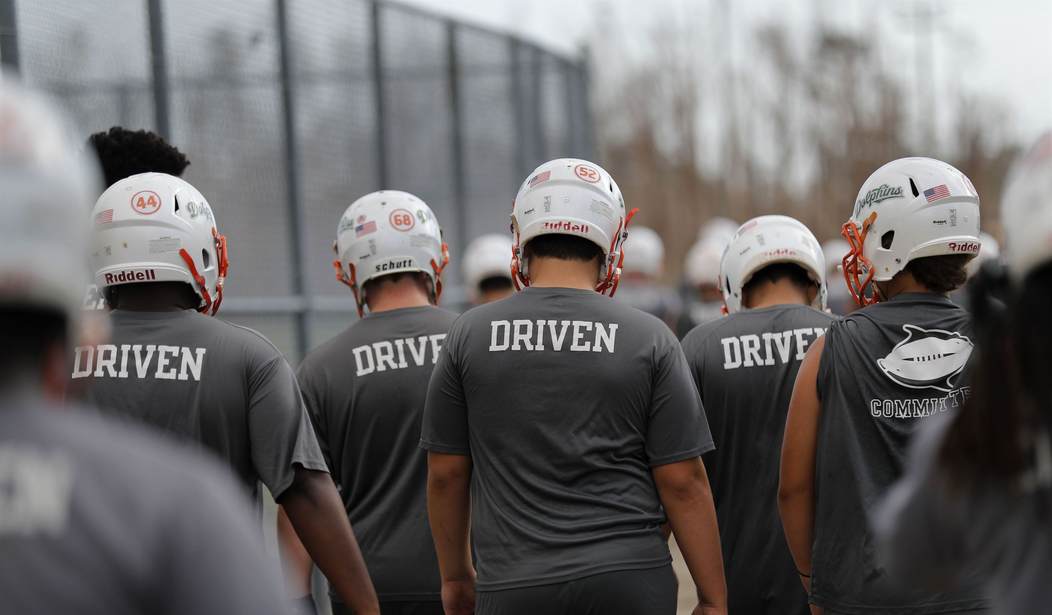High school football holds a special place in American sports folklore. All over the country, fall Friday nights are the social events of the year; the community glue that makes it seem as if the 21st century hasn't spun entirely out of control. The players have gotten bigger and faster, but there is still a quaintness to the high school game. Money hasn't infected it the way it has in the NFL and major colleges, where television dictates everything.
The very premise of this column would seem preposterous at my high school alma mater, a Catholic school football powerhouse that routinely sends players off to Top 25 FBS colleges. There is something, however, that my good friends who are football fans and I have been talking about for a long time, which the Washington Post mentioned in a recent long article about the state of tackle football and America's youth.
Because it's WaPo, it looks at everything through a political prism. This was the part that caught my eye though:
The NFL, which is among the most influential cultural institutions in the United States, has long viewed the slow decline in high school participation rates — beginning in 2006 and accelerating amid the avalanche of negative storylines in the 2010s regarding traumatic brain injuries — as an existential threat. The league has targeted it with a series of responses, most notably an embrace of flag football as an alternate pathway, geared toward coaxing families back into the game.
“Where we were fighting the negative health and safety narratives seven, eight years ago, we were saying, ‘Okay, well, let’s evolve,’ ” said Roman Oben, an offensive tackle for 12 seasons in the NFL, who now serves as the league’s vice president for football development. “... It’s okay to admit that we had to evolve.”
I've long thought that football as we know it won't exist in the United States in 25-30 years. If schools start getting sued for the head injuries that boys get while playing football, they'll either have to start spending a fortune on liability insurance, or scrap football programs altogether. I have friends whose alma maters have already gone that route.
At present it seems that this couldn't possibly happen. If you think about it, however, it's not far-fetched.
For hardcore fans, one of the main appeals of the game is also at the center of its problem for long-term survival: the violence. It is called tackle football. Yeah, it's fun to see a quarterback throw a long pass for a touchdown, but it's even better to see a linebacker upend a running back and drop him for a loss. People can tell you that they like the wide-open offenses of the modern era, but they're all still watching videos on YouTube of Dick Butkus and Jack Lambert annihilating ballcarriers and receivers.
Only so much of that can be removed from the game for safety reasons. The advances in equipment and training may not have helped so much. There are now 300-pound defensive ends who are as fast as defensive backs from an earlier era. They're guided missiles, and if they have an open shot at the guy with the ball, he's going to feel it.
At the high school, college, and pro levels, there is only so much of that you can take out of the gameplay to mitigate the danger before it's just not football anymore. I'm waiting for the day when the rules say that a defender must politely ask the quarterback if he is allowed to make eye contact before suggesting that they come to some sort of agreement about how the play should end.
Honestly, I don't know how more flag football is going to help; it seems like delaying the inevitable.
I truly hope I'm wrong here, but you can see I have given this a lot of thought. Yes, I'm aware that there are a lot of people out there who have sworn off being sports fans. I've given that a whirl, and failed every time.
A man's gotta know his limitations.
Click the button below to get the Morning Briefing emailed to you every weekday. Have your coffee with me, people. It's free and it supports conservative media!










